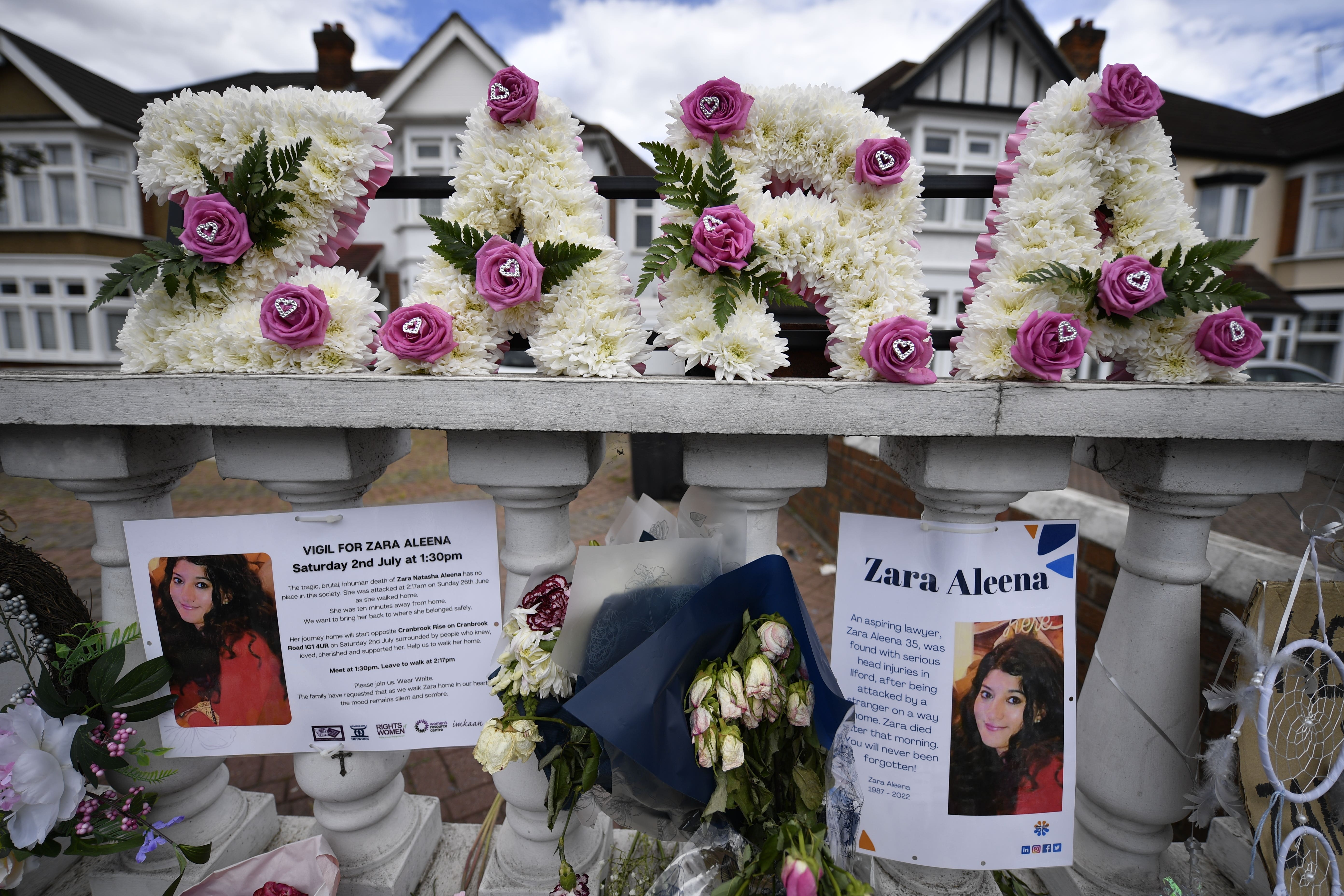Every year I read out the list of women who have been killed by men – it never gets any shorter
The names of victims reverberate through Westminster. Jess Phillips MP explains why she reads them out


Reading out the list of names of women killed by men compiled by the femicide census as I do every year on International Women’s Day will, no matter what I do in the future, never be rivalled by anything else in my political life.
It is the thing most strangers approach me about when I am out and about. I’ve been told so many times that I read out the name of someone’s daughter, sister, friend or mother. It catches me off guard whenever this happens. I’m struck by the honour that families feel to see their loved one’s name exists forever on the public record; a roll call akin to that of fallen soldiers.
It’s not an easy gig – it hurts, but more than anything else it makes me feel tired. I never sleep well the night before, because it is so wearying in the lead-up.
But it’s an even harder task for Karen Ingala Smith, the woman who for years has painstakingly searched local and national news to find the names that make up the list. Karen didn’t believe that women’s deaths were treated seriously enough by state agencies in the UK, so she took it upon herself to scour the internet for the names of those killed and compile them for posterity.
In Karen’s eyes, dead women had become just a statistic that politicians, quickly briefed, trotted out at a rate of two a week. Thanks to Karen’s research, that number is now up to one every three days. These women and the manner in which they died are not just a statistic to be ignored. Not to Karen, and not to me.
Killed women matter more today than they did seven years ago when Karen and I teamed up. Still too many of the women on the list are unknown to most, but every year more and more of their stories reach the front pages of national papers (instead of just the court reports on page nine of the local gazette).
This year we named Zara Aleena, who was killed in public by a dangerous and violent man who was completely unknown to her. That man had been released from prison and assessed as “medium risk” by probation. I read the name of Epsom headteacher Emma Pattison, who is believed to have been shot and killed by her husband. It gives me hope that these stories reached the headlines, built public anger, and pushed political action and answers.
That said, I’ll wager you don’t know the name of Holly Newton, the 15-year-old from the North East stabbed to death while she travelled home from school. Or Anne Woodbridge, the 92-year-old from the South West found dead in her home whose husband is currently awaiting trial for her murder.
Old or young, north or south, in their homes, on the streets, or at work: women are not safe. Be it strangers or partners, men’s violence blights the lives of women on every single street in our country. If we do not name it for what it is, and acknowledge the trends that make these killings possible – such as the failures of police, probation and courts to protect the public; or health and social services to pass on the necessary intelligence – we will never stop it.
This is not just violence against women and girls; it is, specifically, men’s violence against women and girls. Male perpetrators of this violence frequently act with impunity in the lead-up to the killings – and it should be noted that I use the word “killings” instead of “murder” because so often these incredibly violent incidents are ruled to be manslaughter with diminished responsibility. Take for example the case of Joanna Simpson, whose husband was charged with manslaughter even though he had meticulously planned her murder, to the point that he had dug her grave days (if not weeks) earlier.
For most violent men in our country there is no offender management to speak of, and no real plan to create it. This is even true of those who have already been convicted of crimes of sexual and domestic abuse. The femicide census tells us that of those who murdered women between 2009 and 2018, 29 had murdered before and were left to kill again. The amount who were known abusers who went on to kill is 46 per cent. And yet the imperative falls on women to keep themselves safe from known criminals, despite the deck being so heavily stacked against them.
The government says this is a priority, but I’ve never seen the home secretary (whose job it is to lead on this policy) do a media round about it. I have never seen the prime minister stand in front of a podium that says “Stop the killing”. There is no evidence whatsoever that this is a priority for them. It is for me, and it will be for any future Labour government.
The list of women killed by men never gets dramatically shorter. It bobs around the same figure of a woman every three days, give or take. But they aren’t just a figure to me. Their names matter. Their stories mattered. Their lives mattered. They mattered.
Jess Phillips is the shadow minister for domestic violence and safeguarding and Labour MP for Birmingham Yardley

Join our commenting forum
Join thought-provoking conversations, follow other Independent readers and see their replies